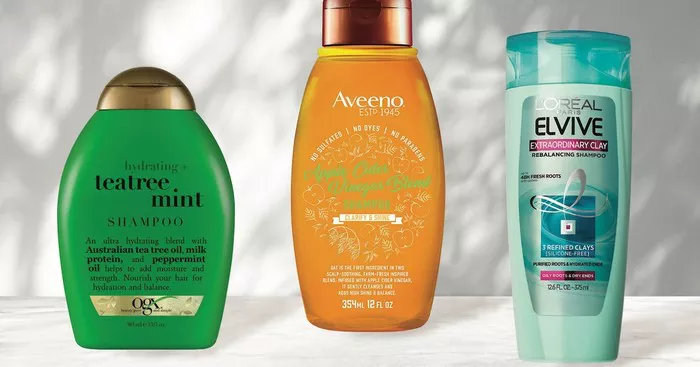Argan oil, often referred to as “liquid gold,” has gained immense popularity in the world of beauty and skincare. Its exceptional properties make it a sought-after product for various applications, from moisturizing the skin to nourishing hair. But with the market flooded with options, how do you determine which argan oil is truly the best for your needs? In this comprehensive guide, we delve into the world of argan oil and help you make an informed choice.
The Origins of Argan Oil
Argan oil is extracted from the kernels of the Argania spinosa tree, which is native to Morocco. This precious oil has been used for centuries by Moroccan women for its exceptional cosmetic and medicinal properties. Known for its high content of essential fatty acids and antioxidants, argan oil is renowned for its ability to hydrate, rejuvenate, and protect the skin and hair.
The Argan Oil Extraction Process
The extraction of argan oil is a meticulous process that involves several steps. The kernels are hand-harvested, cracked open, and the seeds are carefully removed. These seeds are then cold-pressed to obtain the pure, unadulterated argan oil. The traditional methods of extraction ensure that the oil retains its beneficial properties.
Types of Argan Oil
There are two primary types of argan oil available in the market: cosmetic and culinary.
1. Cosmetic Argan Oil
Cosmetic argan oil is specifically produced for skincare and haircare. It is rich in essential fatty acids, vitamin E, and antioxidants, making it a superb choice for moisturizing and protecting your skin and hair. Look for pure, organic cosmetic argan oil with no additives for the best results.
2. Culinary Argan Oil
Culinary argan oil is primarily used in Moroccan cuisine. It has a nutty flavor and is a key ingredient in dishes like couscous and tagines. While it may not be suitable for skincare, culinary argan oil is a delicacy with its unique taste.
How to Choose the Best Argan Oil?
With the vast array of argan oil products available, selecting the best one can be a daunting task. Here’s a step-by-step guide to help you make an informed decision:
1. Check the Ingredients
When purchasing argan oil for cosmetic use, carefully examine the list of ingredients. The best argan oil should contain only one ingredient: 100% pure argan oil. Avoid products with additives, fillers, or artificial fragrances.
2. Look for Organic and Cold-Pressed
Opt for organic argan oil as it is free from pesticides and chemicals. Additionally, ensure that the oil is cold-pressed, as this method preserves the oil’s natural properties and maintains its effectiveness.
3. Packaging Matters
Argan oil is light-sensitive and can degrade when exposed to direct sunlight. The best argan oil comes in dark glass bottles that protect it from UV rays and air exposure.
4. Research the Brand
Do your research on the brand you are considering. Reputable brands often provide information about their sourcing, extraction methods, and certifications. Look for certifications such as USDA Organic and Fair Trade, which reflect the quality and ethical production of the oil.
5. Assess the Scent
Pure argan oil has a mild, nutty scent. If the oil you are considering has a strong or unpleasant odor, it may not be of high quality.
The Benefits of Argan Oil
Argan oil offers a multitude of benefits for both your skin and hair. Let’s explore its advantages in detail:
1. Skin Benefits
a. Moisturization: Argan oil is an excellent natural moisturizer, making it ideal for dry and dehydrated skin. It helps maintain skin’s elasticity and softness.
b. Anti-Aging Properties: With its high vitamin E content and antioxidants, argan oil helps reduce the appearance of fine lines and wrinkles.
c. Acne Treatment: Argan oil is non-comedogenic, meaning it won’t clog pores. It can help soothe and heal acne-prone skin.
d. Scar Healing: The oil promotes the healing of scars and blemishes, making it a valuable addition to your skincare routine.
2. Hair Benefits
a .Hair Conditioning: Argan oil is a fantastic natural conditioner, leaving your hair soft, shiny, and manageable.
b. Split End Prevention: Regular use of argan oil can help prevent and repair split ends, promoting healthier hair.
c. Frizz Control: It tames frizzy hair and adds a natural shine, making it an excellent choice for styling.
d. Strengthening: Argan oil strengthens hair and promotes overall hair health.
See Also: Can I Let My Hair Dry Naturally: A Quick Guide
Using Argan Oil
To make the most of your argan oil, here are some tips for application:
1. For Skin
- Cleanse your face and pat it dry.
- Apply a few drops of argan oil and gently massage it into your skin.
- Allow the oil to absorb before applying other skincare products or makeup.
2. For Hair
- Take a small amount of argan oil and rub it between your palms.
- Apply it evenly to your hair, focusing on the ends.
- Style as desired.
Conclusion
Argan oil is undoubtedly a versatile and valuable addition to your beauty and wellness routine. By understanding the origins, types, and how to choose the best argan oil, you can harness its remarkable benefits for your skin and hair. So, the next time you’re in the market for this liquid gold, remember the key factors that define the best argan oil for your needs. With the right choice, you can unlock the natural goodness of argan oil and experience the difference it makes in your daily beauty regimen.


